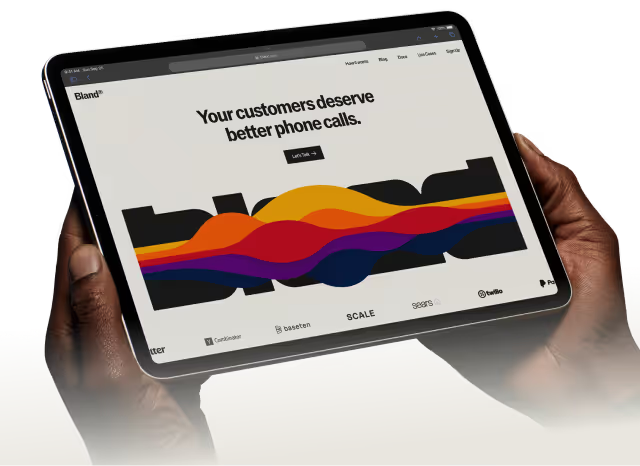Picture your support team juggling email, chat, phone, and social media while ticket queues grow and response times slip. In help desk software and solutions, enterprise customer service decides whether you keep customers or lose them. What matters most to your team, faster response, tighter SLAs, or lower costs, will shape the tools you need. This article shows you how to quickly find the most effective, feature-rich, and reliable enterprise customer service software that fits your organization’s size, needs, and budget, so you can streamline customer support and improve satisfaction.
To reach that goal, Bland AI’s conversational AI acts like a practical advisor, asking a few simple questions and then surfacing platforms that match your needs for omnichannel ticketing, CRM integration, automation, knowledge base, analytics, scalability, and compliance, saving you time and reducing guesswork.
Table of Contents
- Summary
- What Is Enterprise Customer Service Software?
- 15 Best Enterprise Customer Service Software Solutions
- 26 Notable Enterprise Customer Service Software Solutions
- Book a Demonstration to Learn About our AI Call Receptionists
Summary
- Enterprise adoption is mainstream, with 74% of businesses using enterprise customer service software, signaling that improving CX is a primary driver of vendor selection.
- The proper tooling drives outcomes, with enterprise customer service software reported to increase customer satisfaction by 30%, which correlates with fewer repeat contacts and higher first-contact resolution rates.
- Self-service and employee engagement are linked to experience design, as over 70% of customers expect self-service options, and companies that excel at CX have 1.5 times more engaged employees.
- Scaling requires trade-offs, because teams with fewer than 25 agents often favor simpler CRMs for speed. In comparison, organizations with more than 100 agents need governance, API depth, and role-based controls to avoid costly migrations.
- Fragmentation creates hidden costs, and vendor choice becomes a critical infrastructure decision, with 80% of enterprises stating that customer service software is crucial and 70% reporting an improvement in customer satisfaction after implementation.
- AI reception and voice automation deliver measurable operational gains, with 85% of businesses reporting increased efficiency from AI receptionists and a 30% reduction in operational costs cited for adopters.
This is where Bland AI fits in; conversational AI addresses this by centralizing routing and automating routine voice and chat interactions to preserve context and reduce repeat contacts.
What Is Enterprise Customer Service Software?

Enterprise customer service software enables large organizations to manage high volumes of customer interactions efficiently by unifying channels, automating routine tasks, and transforming contact data into actionable insights.
To continuously improve service, it's practical:
- Route the proper request to the right team
- Reduce repetitive work through automation
- Provide managers with clear metrics
What Does This Software Do On A Day-To-Day Basis?
At the operational level, it acts like an air traffic control tower for customer contacts.
- Automatic call distribution and intelligent routing direct inquiries to the correct queue.
- Interactive voice response and chatbots handle simple requests without requiring human intervention.
- A unified inbox consolidates email, chat, phone, and social media messages
- Call recording and case histories preserve context
- Real-time analytics and dashboards display trends as they occur
Integrations with CRM, help desk systems, and commerce platforms help keep customer records consistent, preventing wasted repetition and shortening resolution paths.
Why Are Enterprises Investing In These Systems?
Enterprises buy these platforms because they scale human effort and make service measurable. Adoption is widespread, with AmplifAI indicating that 74% of businesses utilize enterprise customer service software to enhance the customer experience, suggesting that improving CX is a primary driver of vendor selection. When you combine routing, automation, and analytics, the result is a repeatable service model that reduces friction for customers and clarifies which processes actually move satisfaction and retention.
What Practical Tradeoffs Should Leaders Expect?
This challenge appears across product and support teams: enterprise suites deliver power at a cost.
To maintain flows and connectors, they give:
- Advanced automation
- Deep integrations
- Granular permissions
They demand:
- Configuration
- Governance
- Sometimes, a dedicated admin role
It can feel exhausting when a small team is handed a complex stack, because the initial lift delays visible wins. If your organization lacks implementation bandwidth, prioritize platforms with strong onboarding services or choose modular features you can activate progressively.
How Does This Translate To Measurable Outcomes?
There is a clear link between platform capability and customer experience, as shown by AmplifAI. Enterprise customer service software can increase customer satisfaction by 30%, highlighting that the right tooling lifts core CX metrics rather than just shifting work around. In practice, this means fewer repeat contacts, higher first-contact resolution rates, and cleaner data to inform product and policy changes.
The Fragmentation Trap: Centralizing Conversation and Knowledge for Scalable Growth
Most teams handle growth by bolting point tools together because that feels quicker and familiar, which works early on. As channels and stakeholders multiply, conversations fragment, context is lost, and response times stretch, creating churn and unpredictable workloads. Platforms like Bland AI offer a different path, centralizing routing and knowledge through conversational automation and role-based workflows, allowing teams to maintain quality. At the same time, volume grows, compressing resolution cycles and preserving audit trails.
How Should You Choose Between Enterprise And Smb Crm Approaches?
These are the features that can help avoid painful migrations later, if your roadmap includes:
- Complex workflows
- Multiple product lines
- Regulatory controls
- Prioritize scalability
- API depth
- Customization
If your immediate needs are simple and headcount is small, a lighter solution wins for speed and adoption. The pragmatic rule I use is this: select the smallest system that meets your long-term governance and integration requirements, not the cheapest that meets today’s ticket volume. Think about the system as a control tower, not a bigger inbox. A well-architected platform prevents collisions, surfaces risks before they escalate, and provides agents with context, not extra clicks; that is where the real operational leverage lies. The part that appears to be solved now is often only the beginning of the real problem.
Related Reading
- Customer Service Representative
- Enterprise Customer Service
- Conversational AI Design
- Helpdesk
- Customer Service Examples
15 Best Enterprise Customer Service Software Solutions
This section lists the most recommended and widely used enterprise help desk and contact center solutions available today, with concise profiles that allow you to quickly compare capabilities and trade-offs. I focus on what each tool does best, the integrations that keep your data flowing, and clear pros and cons you can act on immediately. According to Gladly, “Over 70% of customers expect companies to provide self-service options,” and “Companies that excel at customer experience have 1.5 times more engaged employees.”
1. Bland: Conversational AI To Replace Legacy Call Centers
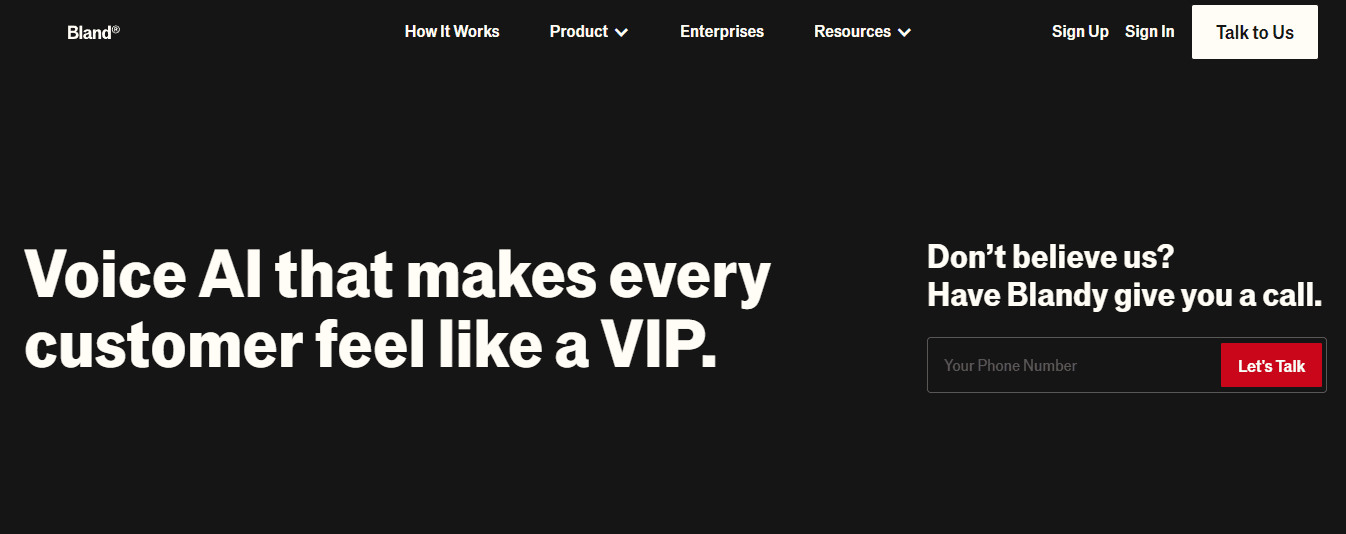
Self-hosted real-time AI voice agents that handle inbound and outbound voice while keeping data on your infrastructure, Bland AI built for large enterprises with compliance needs.
Why Bland Stands Out
It replaces rigid IVR trees with natural voice agents that answer instantly and scale without moving sensitive data to third parties.
Features And Integrations
- Human-like text-to-speech, real-time intent detection, and voice biometrics
- Self-hosted deployment options for on-prem or private cloud
- API connectors for CRMs, telephony carriers, and compliance logging
Pros
- Strong data control and compliance posture
- Scales voice automation without vendor data access
Cons
- Requires infrastructure and ops to host
- Newer ecosystem compared with long-established vendors
2. RingCentral Contact Center: Best Enterprise Call Center Software For Omnichannel Routing
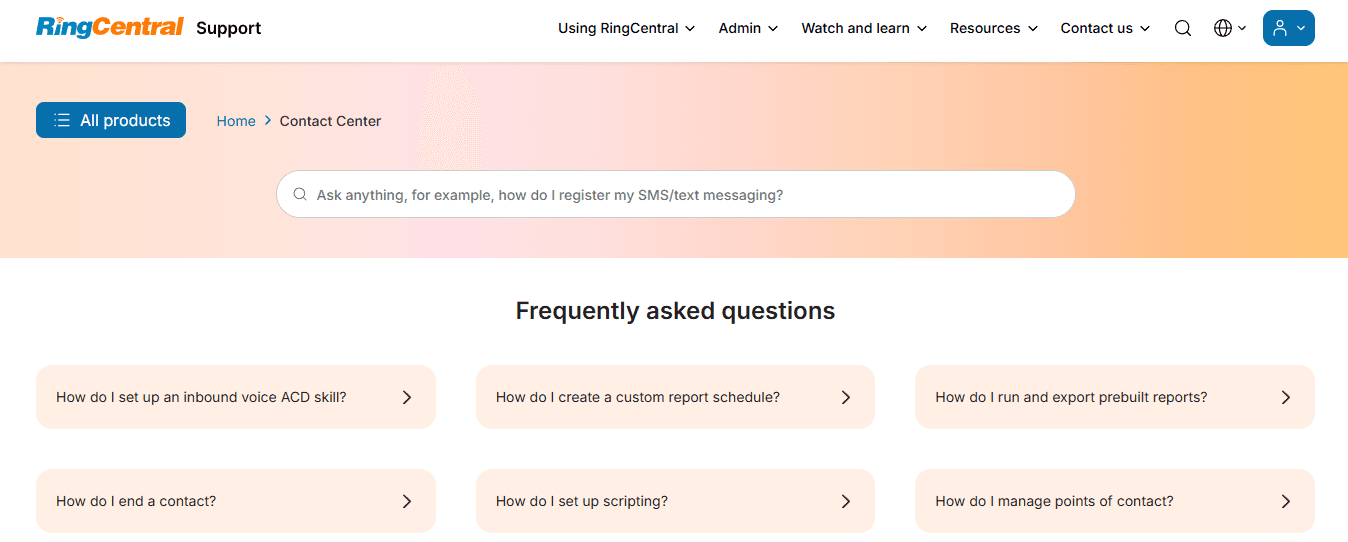
Cloud platform that unifies voice, chat, email, and social channels with built-in workforce engagement tools.
Why Ringcentral Stands Out
Over 30 digital channels supported and a flexible AI-first contact option for both simple and large-scale deployments.
Features And Integrations
- Omnichannel routing, IVR, ACD, auto dialer, workforce management
- Integrations with Salesforce, Microsoft Dynamics, ServiceNow, Zendesk, SAP C4C, NetSuite, Microsoft Teams
Pros
- Broad channel support and strong telephony quality
- Mature integrations with enterprise CRMs
Cons
- Occasional performance lag reported
- Limited SPAM call blocking out of the box
3. Salesforce Service Cloud: Best For AI-Powered Support

CRM-integrated service suite that routes cases, surfaces Einstein AI suggestions, and centralizes customer history across channels.
Why Service Cloud Stands Out
Deep CRM context drives intelligent routing and agent suggestions for personalized, faster resolutions.
Features And Integrations
- Case management, knowledge base, analytics, field service tools
- Native Salesforce suite integrations plus Trello, Mailchimp, HubSpot, Freshdesk
Pros
- Unified customer data and strong AI recommendations
- Good mobile and field service capabilities
Cons
- Occasional downtimes and email integration quirks
- Can be costly at scale
4. Squaretalk: Best For Outbound Calls And SMS At Enterprise Scale
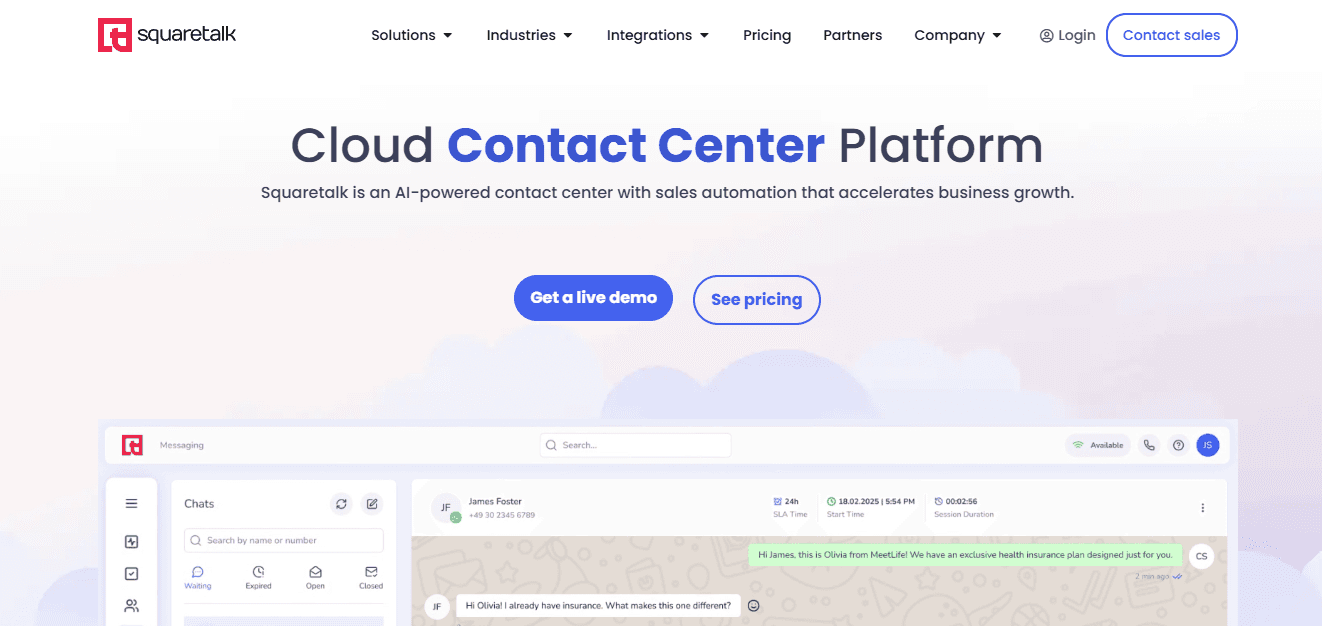
Cloud contact center optimized for high-volume outbound calling and SMS outreach with compliance controls.
Why Squaretalk Stands Out
A predictive dialer paired with SMS automation, optimized for campaigns, reminders, and surveys.
Features And Integrations
- Predictive dialer, SMS management, lead and contact management, call recording
- Integrations with Zendesk, Freshdesk, Zoho, HubSpot, Salesforce, Telegram, Microsoft Teams
Pros
- Strong outbound reporting and security documentation
- Intuitive interface for campaign teams
Cons
- Limited customization compared with enterprise giants
- No native mobile app
5. CloudTalk: Best For Conversational Intelligence With Ai Insights
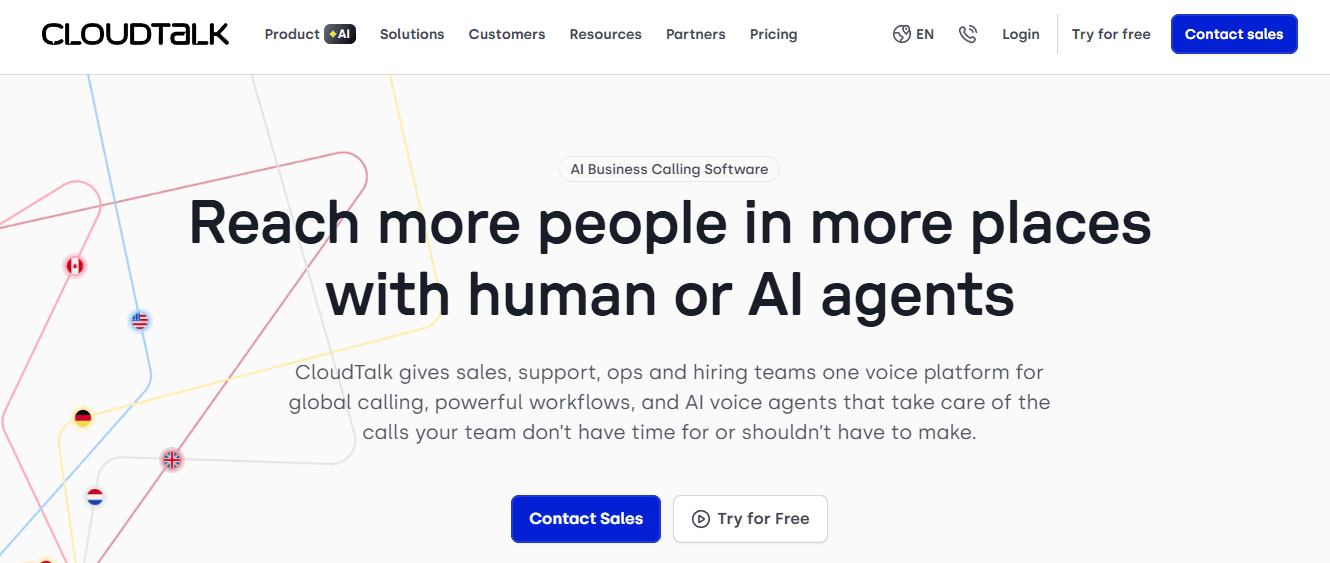
Call center platform focused on voice workflows, AI insights, and agent productivity for high call volumes.
Why CloudTalk Stands Out:
AI-driven call insights and suggested actions that help agents be proactive rather than reactive.
Features And Integrations
- Power dialer, call flow designer, VIP queues, workflow automation
- Integrations with HubSpot, Zendesk, Intercom, Gong, Salesforce, Pipedrive, Zapier (paid)
Pros
- Easy onboarding and clear 360-degree customer views
- Helpful AI analytics for managers
Cons
- Limited omnichannel beyond voice
- Customization depth can be shallow for complex use cases
6. Nextiva: Best For Workforce Management And Productivity
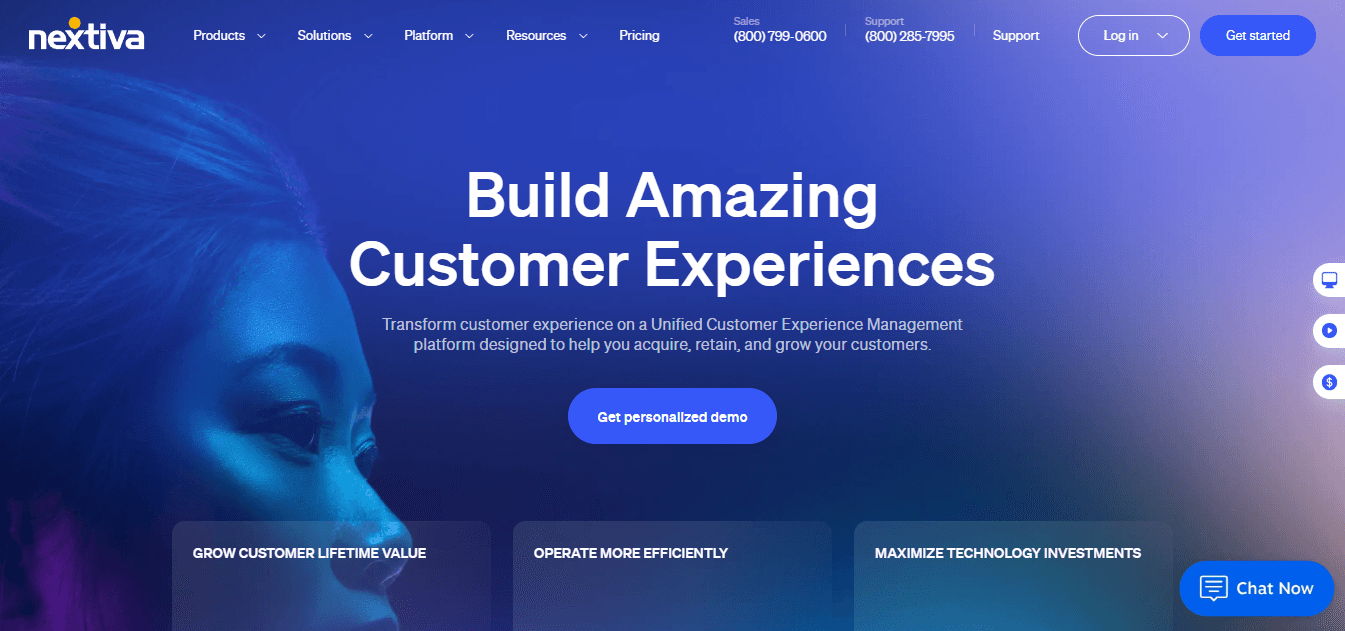
Unified CX platform with strong dialing modes and workforce forecasting tools for staffing optimization.
Why Nextiva Stands Out
AI-powered auto-dialer and sophisticated scheduling that reduce idle time and improve occupancy.
Features And Integrations
- Advanced IVR, omnichannel routing, call recording, speech analytics, sentiment analysis
- Integrations with Zendesk, Salesforce, HubSpot, Microsoft Teams, QuickBooks, NetSuite
Pros
- Strong team collaboration and analytics
- Good set of AI-driven features for repetitive tasks
Cons
- Key integrations behind higher-priced tiers
- Advanced configuration can be complex
7. Talkdesk: Best For Advanced NLP And AI Routing
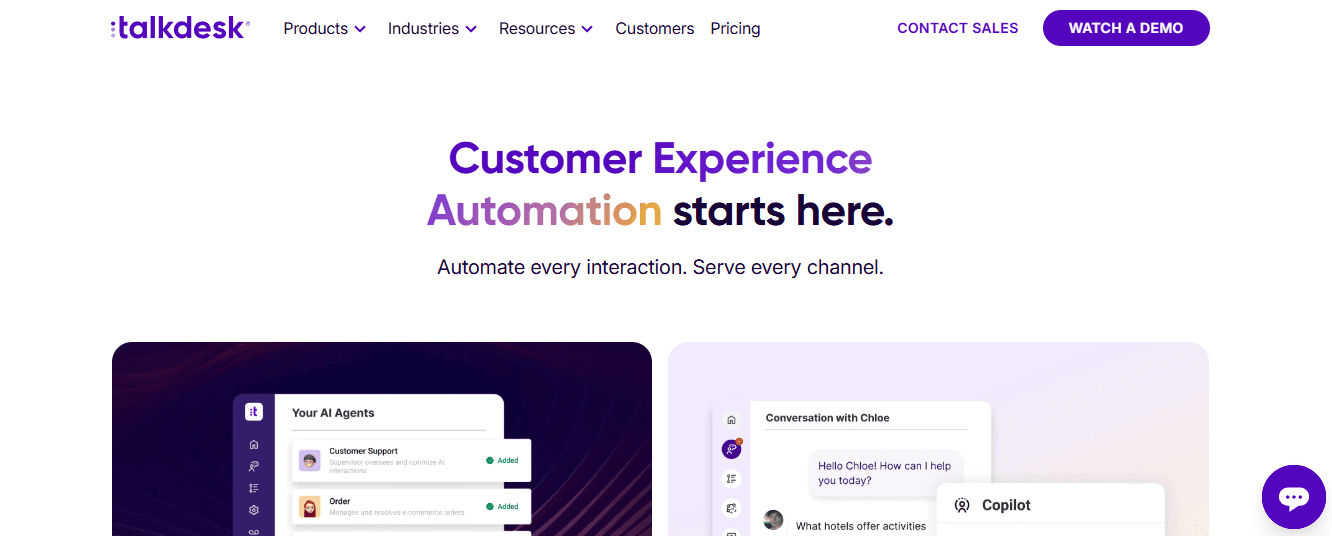
Highly customizable cloud contact center leveraging real-time NLP to categorize, route, and coach on live conversations.
Why Talkdesk Stands Out
Real-time sentiment and NLP-driven routing that automatically route issues to the best-equipped agent.
Features And Integrations
- Omnichannel engagement, workforce management, AI trainer, quality management
- Integrations with Salesforce, Zendesk, Slack, Gong, Pipedrive, Freshdesk
Pros
- Strong customization and routing options
- Proactive engagement through predictive tools
Cons
- Analytics and reporting can be limited compared with peers
- Steep learning curve for administrators
Replacing Brittle IVR: Conversational Automation for Compliance and Risk Reduction
Most teams maintain voice on legacy IVR and handoffs because it feels familiar, and that familiarity provides short-term predictability. As call volumes and compliance rules grow, expect call routing errors, inconsistent agent responses, and lost audit trails, which create risk and hidden costs. Teams find that solutions like Bland AI, with self-hosted, real-time voice agents and native compliance controls, replace brittle IVR chains with conversational automation that preserves data control while reducing repetitive agent work.
8. Twilio: Best For Programmable Customer Engagement
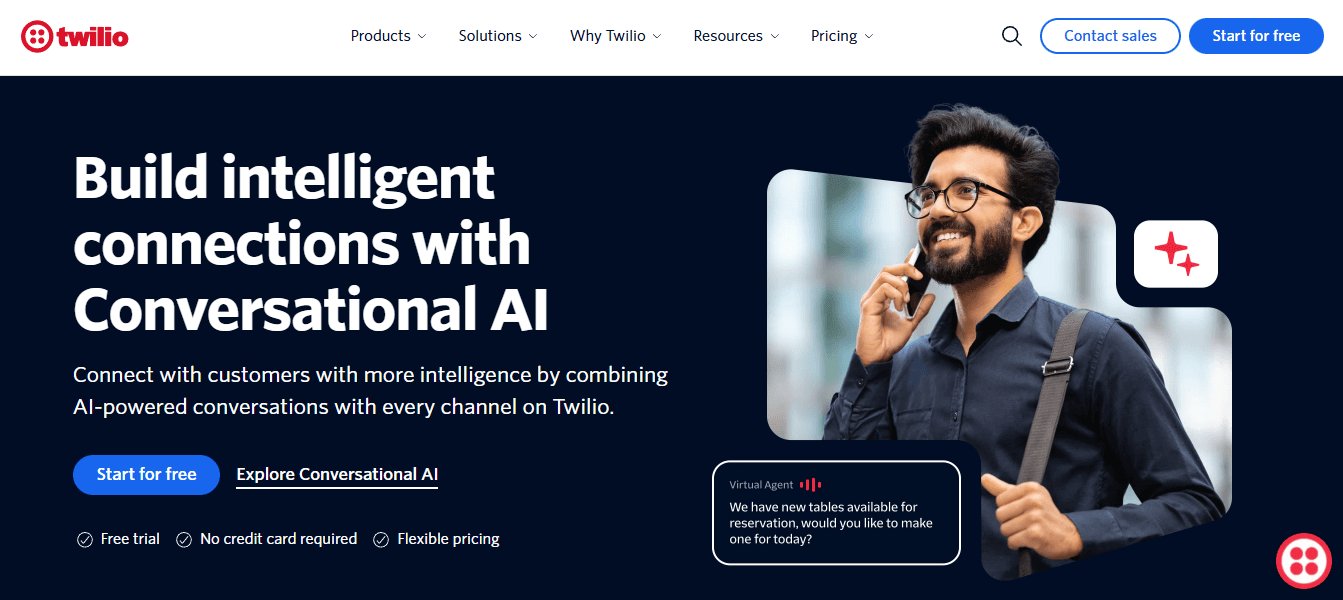
Developer-first communications platform that exposes APIs for voice, messaging, and programmable contact workflows.
Why Twilio Stands Out
Extreme flexibility for teams that want to build custom routing, transcription, and reporting on top of a reliable telephony backbone.
Features And Integrations
- Text-to-speech, call transcription, queued callback, speech recognition bot
- Integrations via NetSuite, Pipedream, Symbl, Replicant, Zendesk, Zapier
Pros
- Programmable and highly extensible
- Flexible pricing models for usage-based billing
Cons
- Requires developer resources and API expertise
- Support can be limited on lower tiers
9. Dialpad: Best For AI Voice Intelligence And Real-Time Coaching

Cloud communication platform that transcribes calls and gives agents live coaching cues and post-call summaries.
Why Dialpad Stands Out
Real-time performance nudges and manager dashboards that reveal sentiment and coaching needs immediately.
Features And Integrations
- Real-time speech analysis, IVR, routing, live sentiment, quality management
- Integrations with HubSpot, Salesforce, Intercom, Gong, Microsoft Teams, Zapier
Pros
- Intuitive UI and strong AI call coaching
- Simple deployment for distributed teams
Cons
- Routing customization is limited for complex flows
- Occasional connectivity hiccups
10. Five9: Best For Full-Featured Cloud Contact Operations
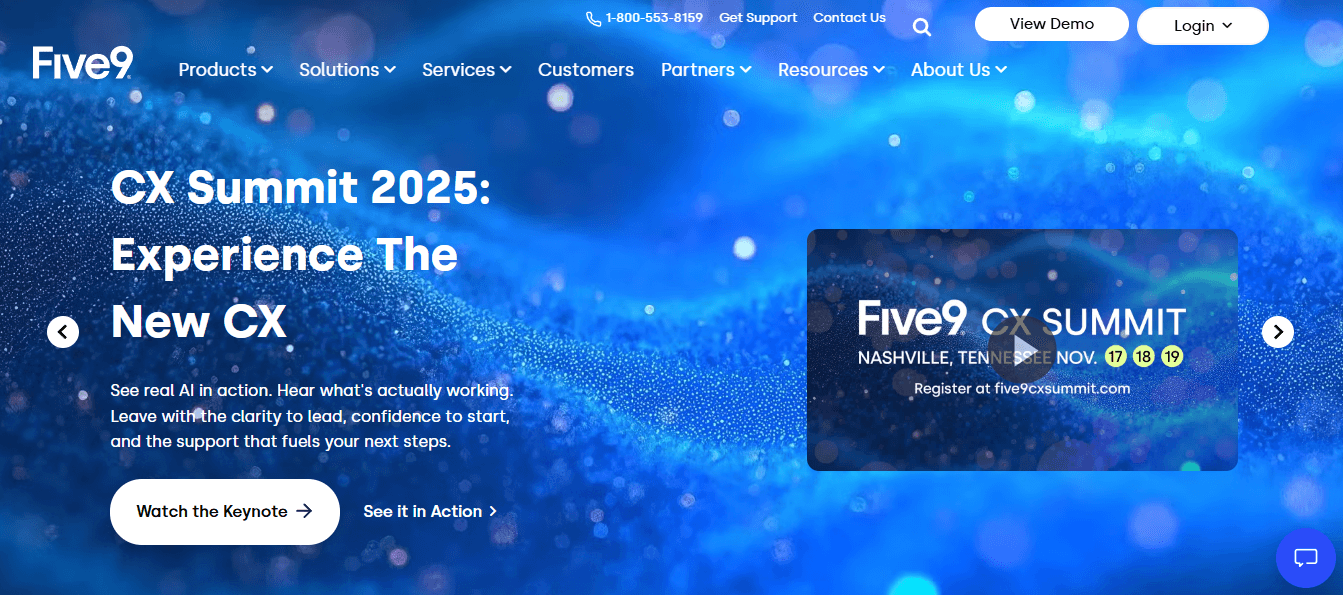
Mature cloud contact center with predictive dialers, IVR, and robust AI agent assist features.
Why Five9 Stands Out
Comprehensive agent assist tools, IVR, and omnichannel routing designed for large contact centers.
Features And Integrations
- Outbound dialer, omnichannel routing, IVA, speech NLP, dashboards, VoIP
- Integrations with Salesforce, Zendesk, ServiceNow, Microsoft Teams, Zoom Phone
Pros
- Real-time transcription and strong predictive dialing
- Wide ecosystem integrations
Cons
- No native ticketing system
- Interface complexity for new admins
11. LiveVox: Best For Customizable Reporting And Campaign Insights

Cloud-native platform built for mid to large enterprises with deep reporting and campaign controls.
Why LiveVox Stands Out
Advanced reporting dashboards and configurable workflows that let managers measure campaign effectiveness precisely.
Features And Integrations
- ACD, IVR, agent scripting, ticketing, secure payment capture, workforce management
- Integrations with AWS, Google, Salesforce, Twilio, CallMiner, and Cresta
Pros
- Strong analytics and workflow customization
- Cloud-native scalability
Cons
- Limited live support options
- Dependent on internet connectivity
12. Timetoreply: Best For Email Response-Time Analytics
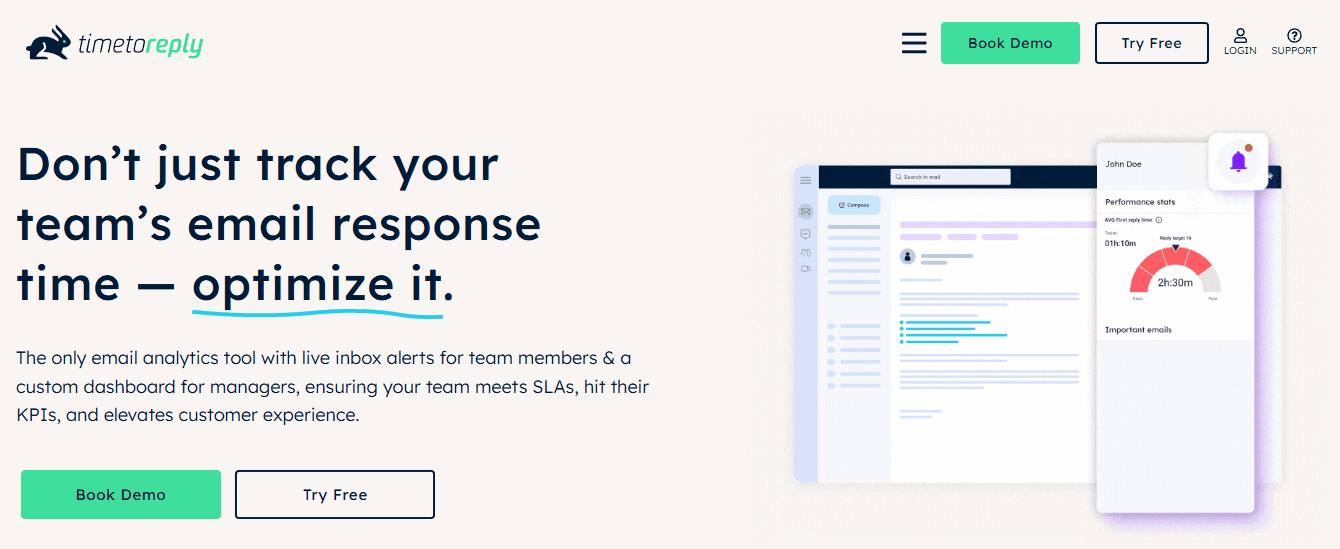
Performance layer for existing email systems that tracks SLA compliance and coaches teams to improve response times.
Why Timetoreply Stands Out
It measures and nudges email behavior without replacing email systems, reducing friction during adoption.
Features And Integrations
- SLA tracking, inbox alerts, coaching prompts, BI connectors with Power BI, Tableau, Looker
- Works with Gmail, Outlook, Microsoft 365
Pros
- No workflow change required, quick implementation
- GDPR-certified and SOC 2 Type II compliant
Cons
- Focused exclusively on email, not omnichannel
13. Help Scout: Best For Human-First Shared Inbox Workflows
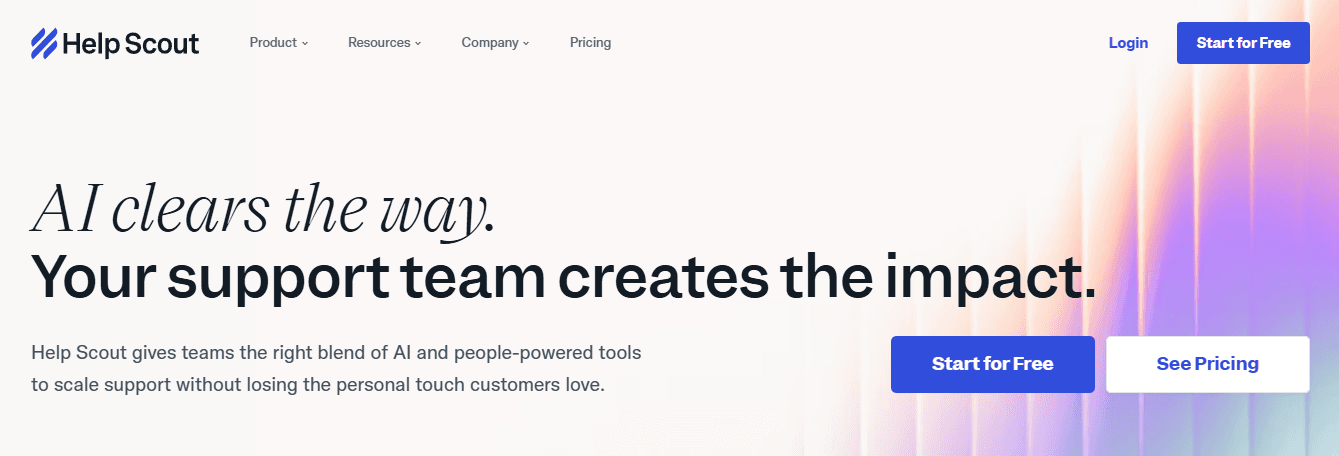
Email-forwarding style help desk built to preserve conversational context and make responses feel personal.
Why Help Scout Stands Out
A familiar Gmail-like interface and customer profiles help teams treat customers as individuals, not just tickets.
Features And Integrations
- Shared inbox, collision detection, customer profiles, knowledge base, live chat
- Integrations with Slack, HubSpot, Salesforce, Zapier, GitHub
Pros
- Easy to adopt, strong email workflows, free tier for small teams
- Customer-oriented features like suggested articles and conversation threading
Cons
- Weaker phone integration options
- Limited advanced automation for large enterprise needs
14. Zoho Desk: Best For Deep Ecosystem Integration And Predictive Insights
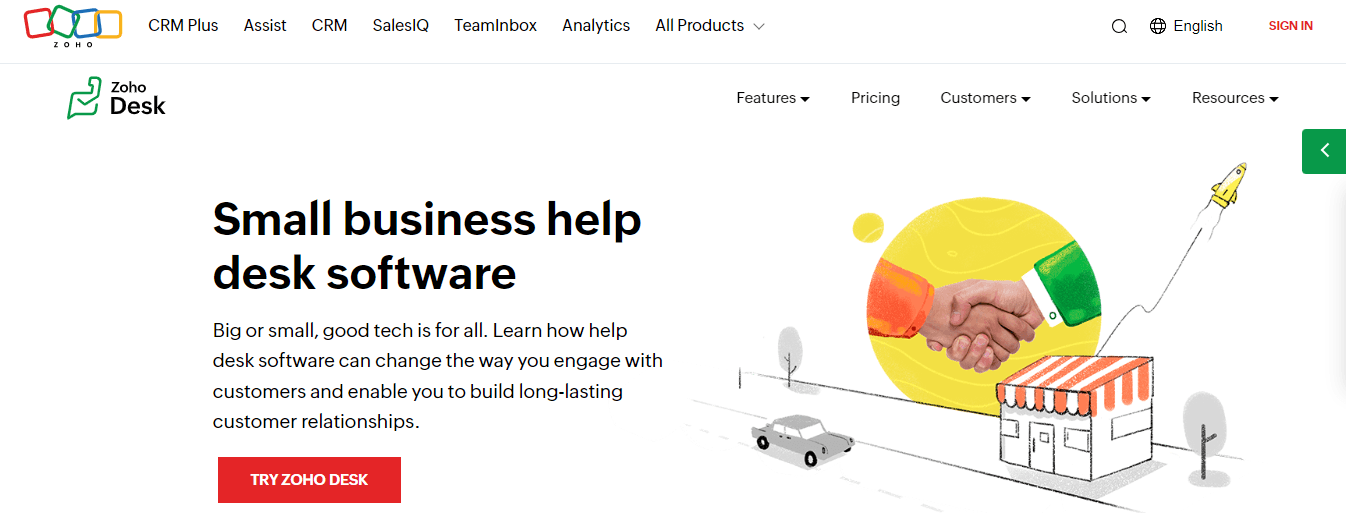
Customer service platform with built-in AI assistant, strong analytics, and native integration across Zoho apps.
Why Zoho Desk Stands Out
Zia AI provides sentiment and response suggestions while CRM and project context are immediately available in support views.
Features And Integrations
- Zia AI, multi-department routing, social monitoring, predictive analytics, blueprint workflows
- Deep integration with Zoho CRM, Projects, Books, and limited third-party connectors
Pros
- Competitive pricing and integrated business app suite
- Predictive insights for satisfaction and trends
Cons
- Crowded interface with a learning curve
- Third-party integrations are fewer than specialist platforms
15. Gorgias: Best For Ecommerce Support Tied To Revenue

Support platform built for online retailers, with order context, revenue tracking, and automation rules to speed ecommerce workflows.
Why Gorgias Stands Out
It treats support as a revenue driver, surfacing order details and conversion metrics directly in conversations.
Features And Integrations
- Order management, automation rules, social channel support, revenue attribution
- Integrations with Shopify, WooCommerce, shipping, and inventory platforms
Pros
- Purpose-built ecommerce workflows and ROI tracking
- Automations that cut routine responses dramatically
Cons
- Narrow use case outside eCommerce
- Pricing scales with ticket volume, which can rise quickly
The Integration Tax: Prioritizing a Single Source of Truth to Eliminate Context Fragmentation
A pattern emerges across migrations and platform choices: teams select tools that seem simple today, but then encounter integration challenges as channels multiply, resulting in fragmented context and agent frustration. When planning adoption, prioritize connectors to CRMs and a single source of truth, so agents spend less time searching and more time resolving. What happens next is harder than you expect, and it changes how you should evaluate every integration and automation decision.
Related Reading
- Good Customer Service
- Customer Service Training
- Customer Care
- Call Center Automation
- Automated Customer Service
- Conversational Commerce
- Best Help Desk Software
26 Notable Enterprise Customer Service Software Solutions
These next platforms fill gaps that most enterprise teams still struggle with:
- Specialized CRM depth
- Vertical workflows
- Lightweight CRMs
These scales without requiring heavy governance. I’ll give each name a tight 2–3 sentence description of who it serves, and the feature that makes it worth considering.
1. Microsoft Dynamics 365
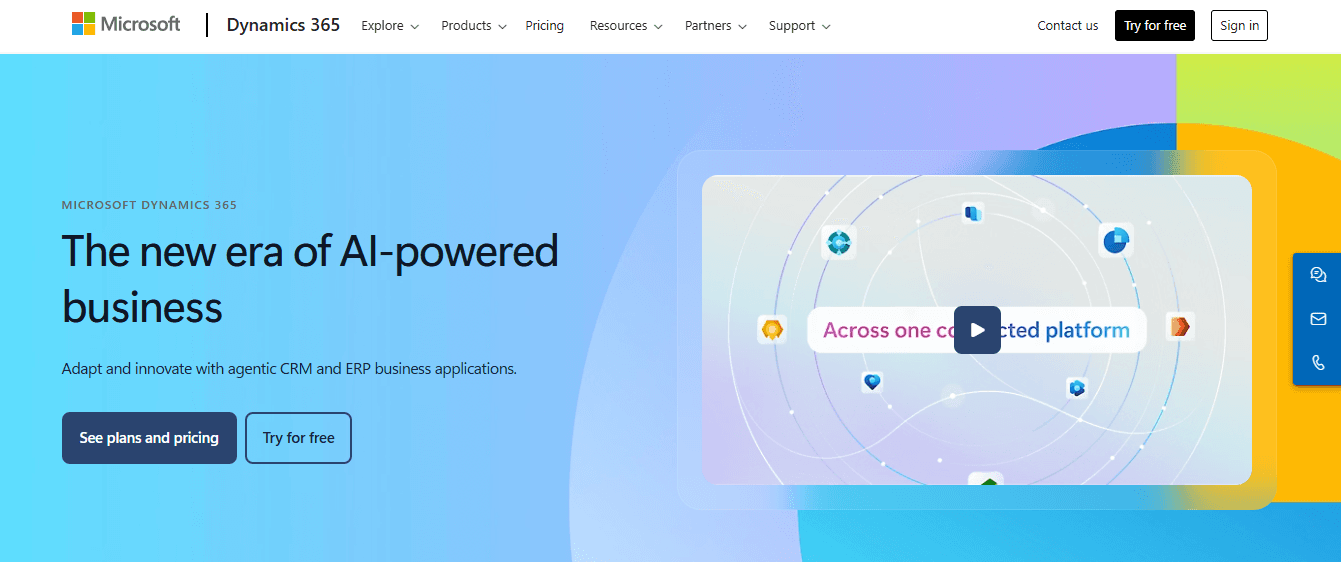
For large organizations, enterprise ERP and CRM combined, Dynamics 365 links:
- Sales
- Service
- Finance
- Operations on a single Microsoft stack
It stands out for deep Microsoft 365 and Azure integrations, role-based security, and extensible analytics for multi-department governance.
2. SAP CRM

SAP CRM is built for complex B2B sales and service processes and integrates tightly with SAP ERP and analytics.
Choose it when you need:
- Industry-specific process controls
- Advanced account hierarchie
- End-to-end order-to-cash traceability
3. Oracle CRM on Demand
A cloud-native CRM focused on enterprise sales and marketing, offering lead-to-opportunity management plus campaign forecasting. It integrates cleanly with Oracle Commerce and ERP suites, making it useful for companies that want unified customer records across back-office and front-office systems.
4. HubSpot Sales Hub
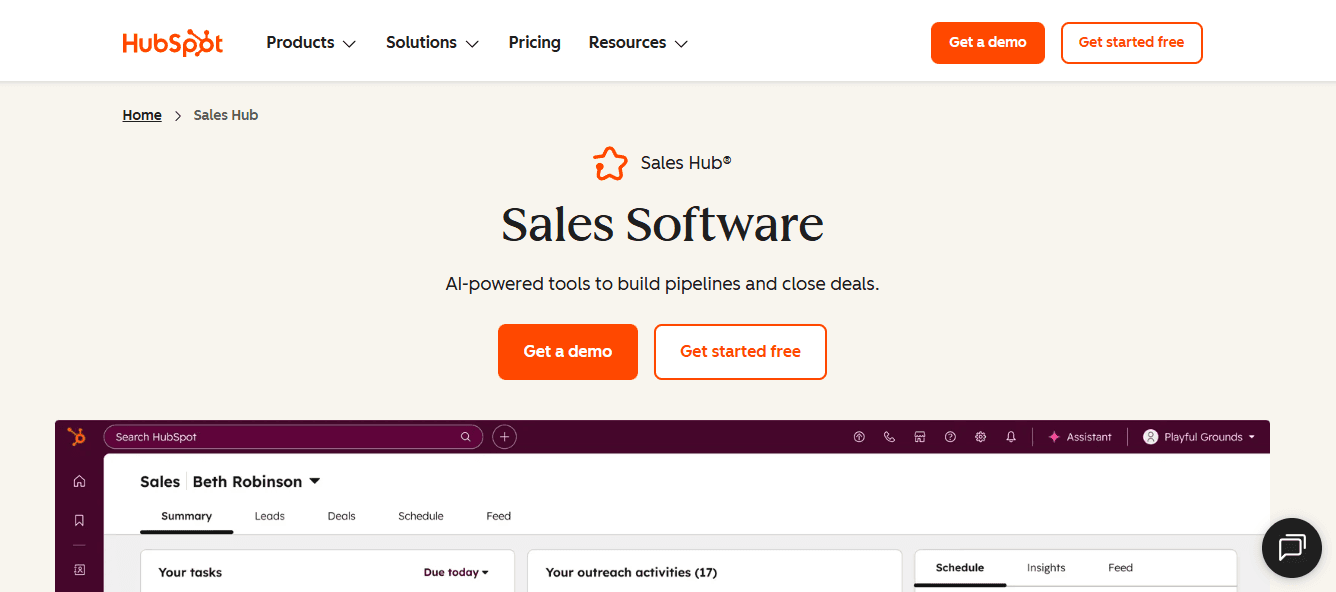
A modern sales platform that simplifies:
- Lead management
- deal tracking
- Email automation
It is for growth teams scaling from SMB to enterprise. It’s notable for fast time to value, integrated marketing tools, and an approachable UI that reduces training friction.
5. Freshworks CRM

Freshworks CRM bundles contact management, marketing automation, and AI lead scoring in a package aimed at mid-market teams.
To speed cross-team workflows, it differentiates with:
- Easy setup
- Conversational AI assistants
- Productized integrations
6. Pipedrive
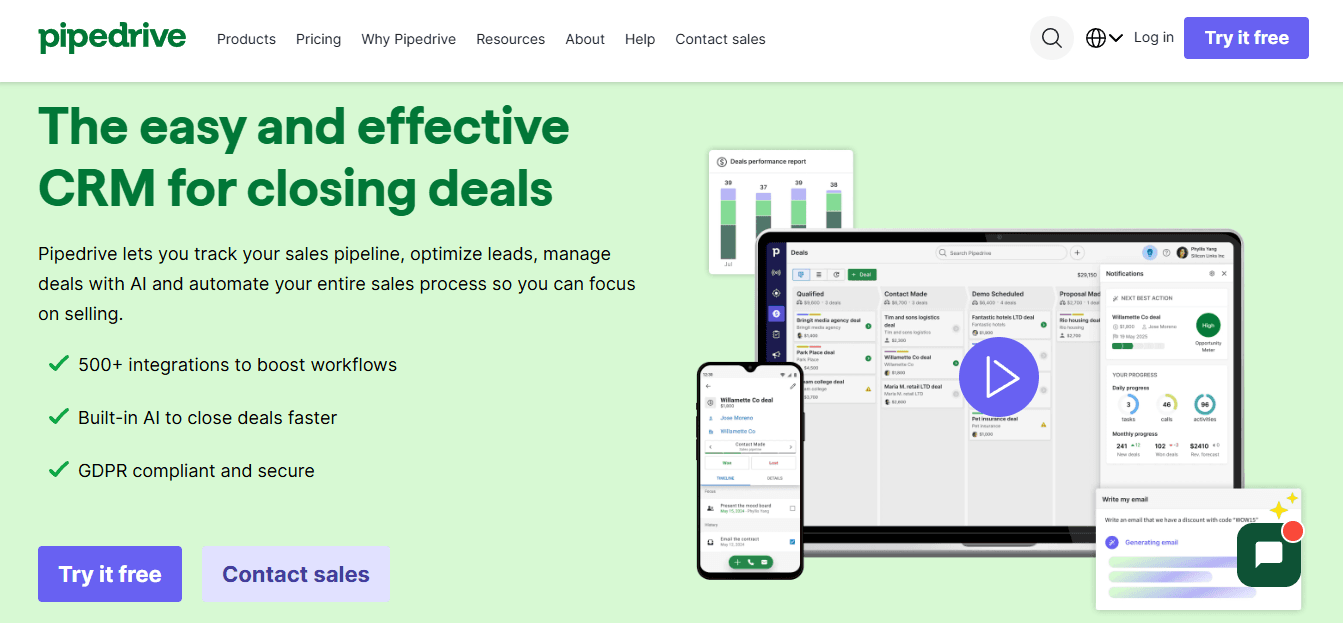
Pipeline-first CRM built for sales teams that need simple, visual deal management and forecasting. Pipedrive shines with a low-friction user experience, activity-based selling features, and customizable pipelines that keep reps focused on revenue-generating activities.
7. Zoho CRM
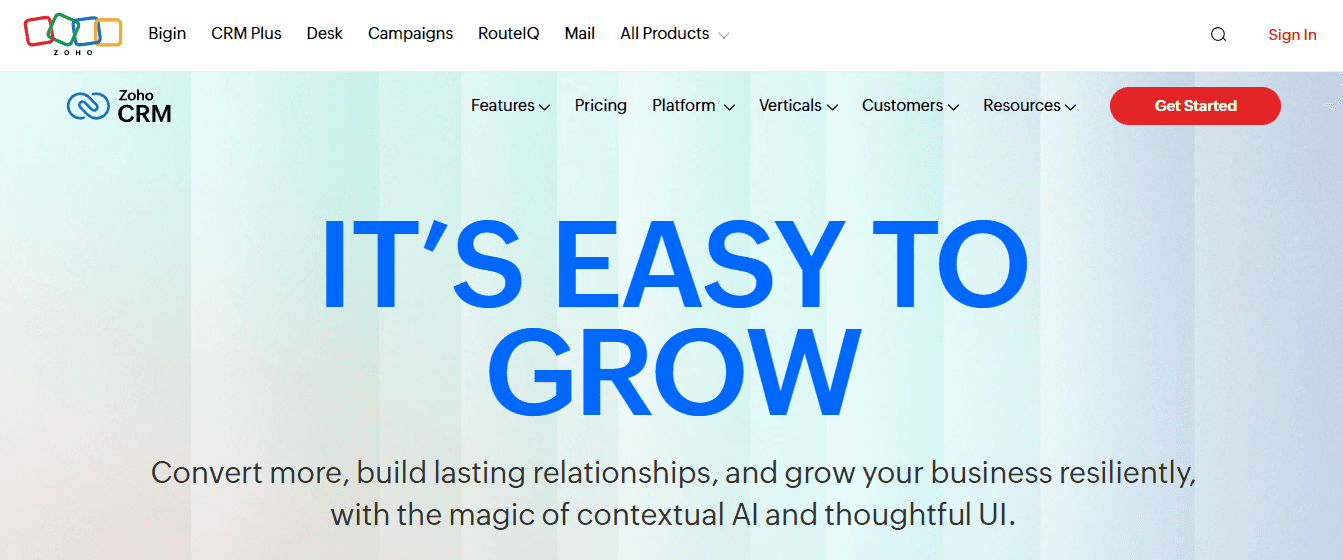
A cost-effective, full-featured CRM with broad automation, reporting, and native integrations across the Zoho suite for companies that want one vendor for many business apps. It’s useful when you need predictive analytics and a modular approach that keeps the total cost of ownership low.
8. Sugar Sell
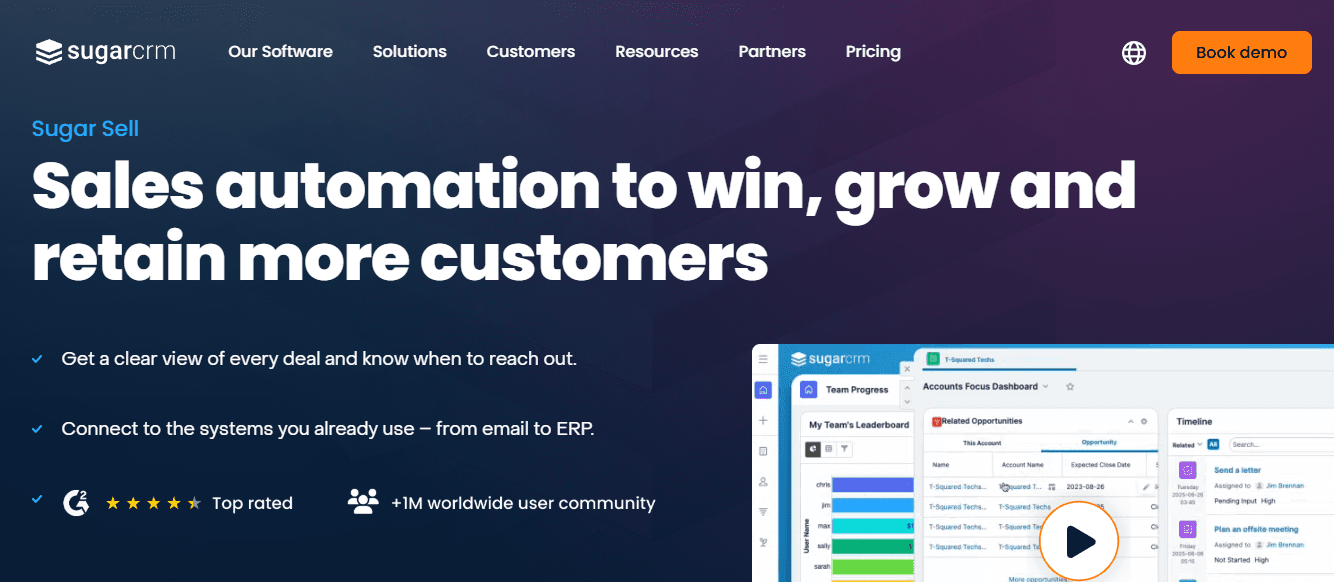
Designed for mid-market to enterprise sellers, Sugar Sell offers:
- Flexible data models
- Configurable workflows
- AI for lead prioritization
Its strength is customization without heavy developer dependence so that process owners can adapt sales logic quickly.
9. NetSuite CRM
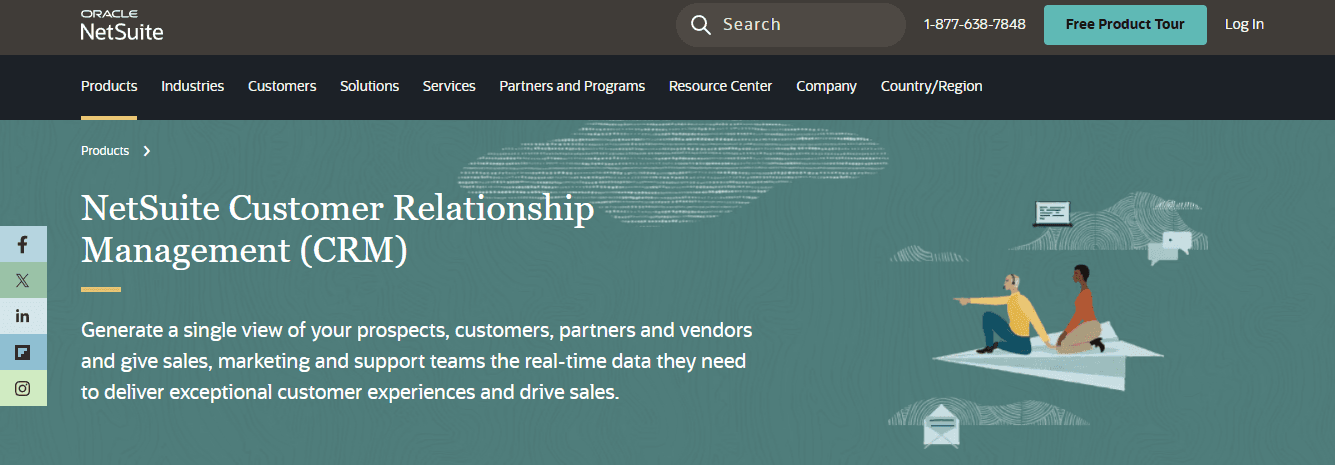
CRM embedded inside NetSuite’s ERP, providing unified customer, order, and financial data for enterprises that want true back-office and front-office alignment. Ideal for companies that need order and subscription lifecycle visibility tied directly to their finance department.
10. Infor CRM

CRM with industry-focused capabilities for manufacturing, healthcare, and financial services, built to mirror vertical process needs. It adds value where domain-specific workflows and compliance controls matter more than out-of-the-box simplicity.
11. Zendesk Sell
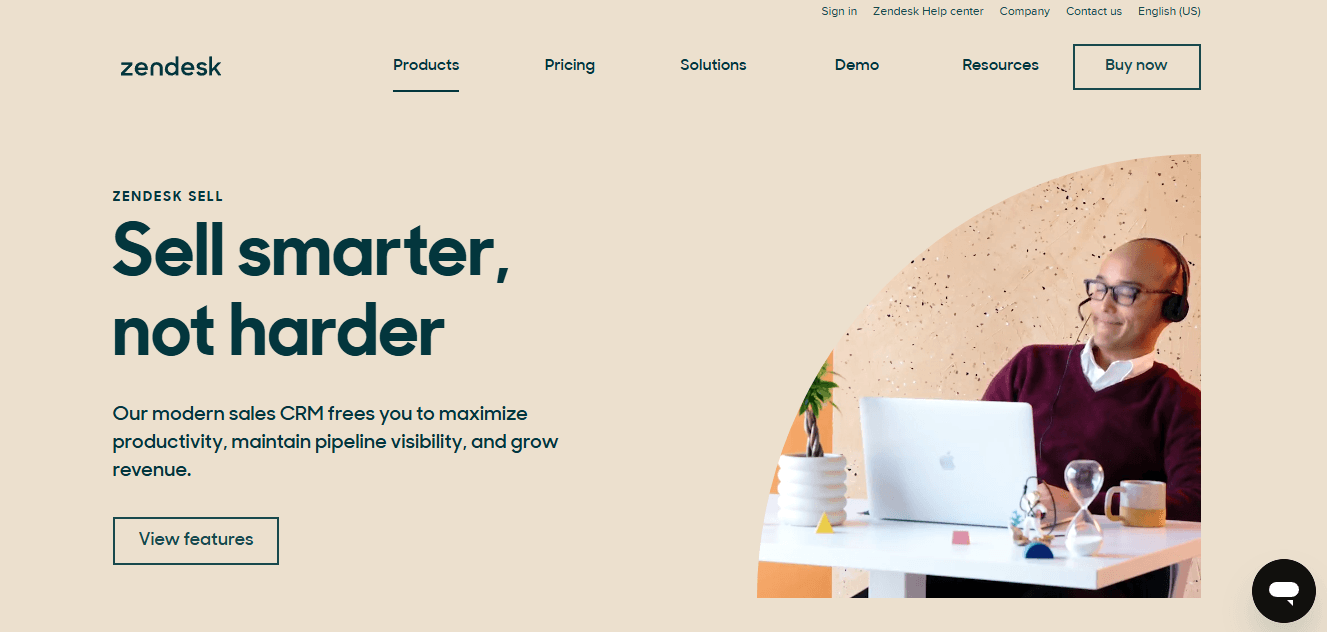
Sales CRM that complements Zendesk’s service focus, offering lead and pipeline management with an emphasis on simplicity and speed for sales reps. It’s attractive to teams looking to keep service and sales context aligned without complex integrations.
12. ActiveCampaign
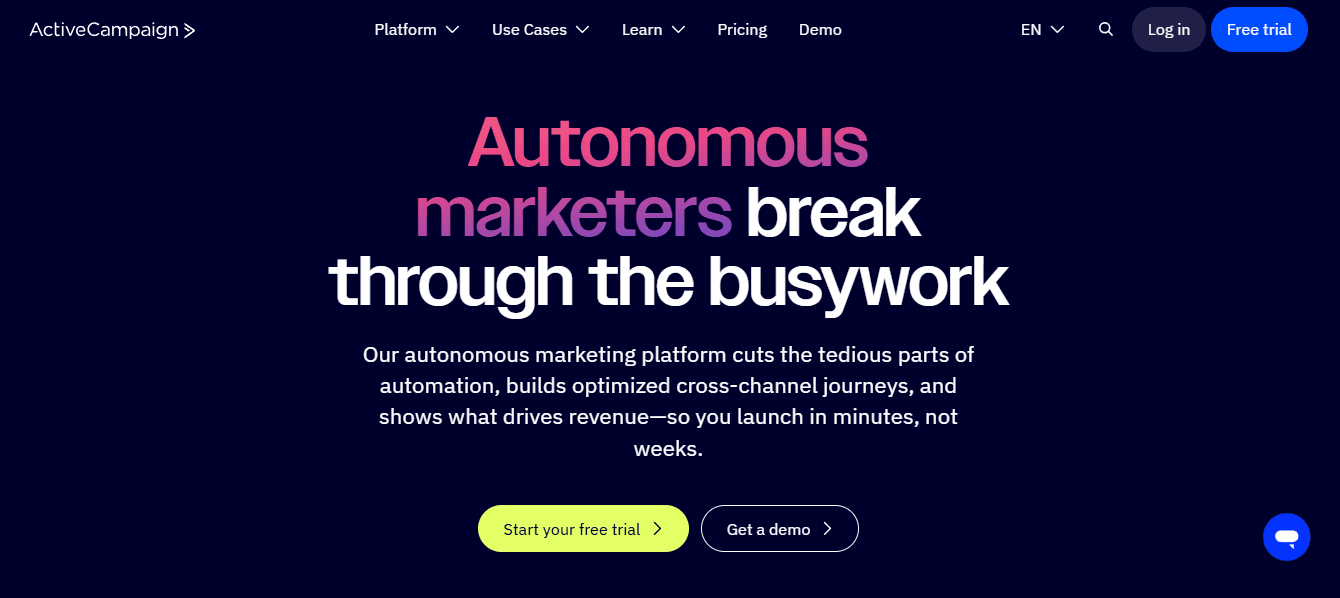
For growth-stage teams, a marketing automation and CRM hybrid that blends:
- Email sequencing
- Behavior tracking
- Pipeline features
It’s particularly strong in customer journey automation and attribution for marketing-led revenue plays.
13. LeadSquared
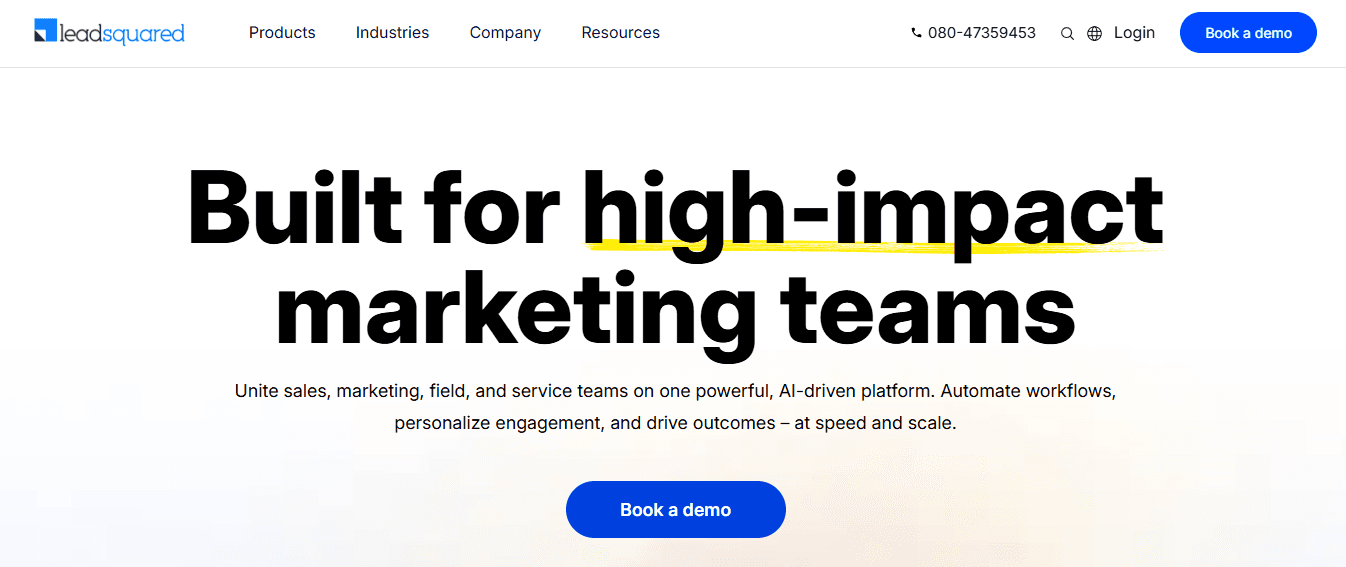
Lead-centric CRM built for high-velocity lead capture, scoring, and nurturing, commonly used by:
- Education
- Finance
- Real estate verticals
It stands out for its automation rules engine and rapid lead routing, keeping conversion paths tight under volume.
14. Oracle Siebel

A mature, highly configurable CRM used in large, regulated enterprises requiring strict process control and deep industry adaptations. Siebel’s strengths include:
- Scale
- Proven security
- Vertical templates for sectors such as:
- Government
- Healthcare
15. FreeAgent CRM
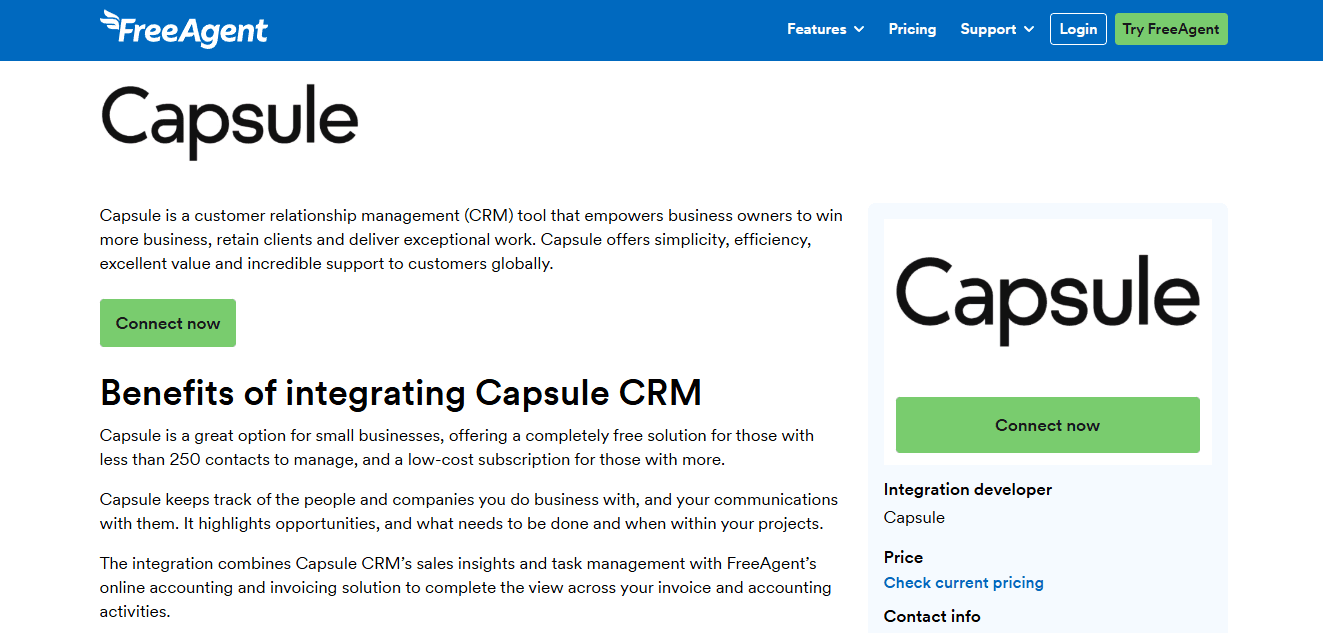
A compact CRM aimed at small and midsize businesses that need:
- Contact management
- Automation
- Forecasting without enterprise overhead
Its selling point is simplicity, with features like lead scoring and segmentation packaged for fast adoption.
16. Shape CRM

Cloud CRM for SMBs that combines:
- Lead nurturing
- Territory management
- Simple forecasting tools
Shape works well when you want sales process discipline without heavy IT involvement.
17. BNTouch Mortgage CRM
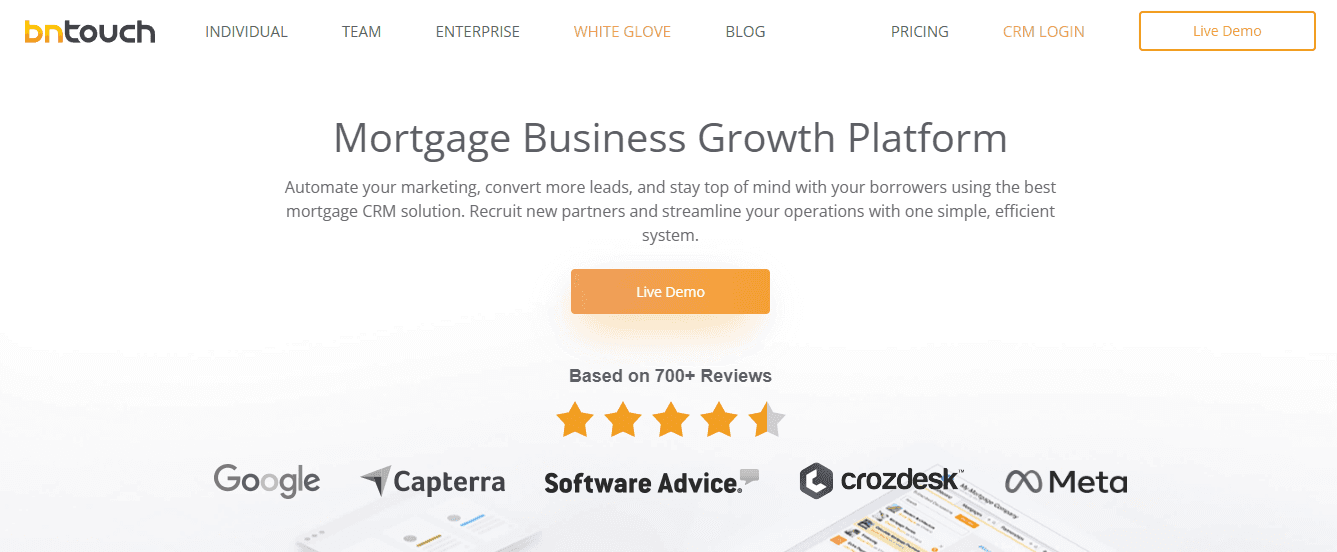
To lending workflows, vertical CRM for mortgage professionals, offering:
- Lead management
- Loan pipeline tracking
- Campaign automation tailored
It integrates with origination systems and pricing engines to reduce manual reconciliation.
18. Workbooks
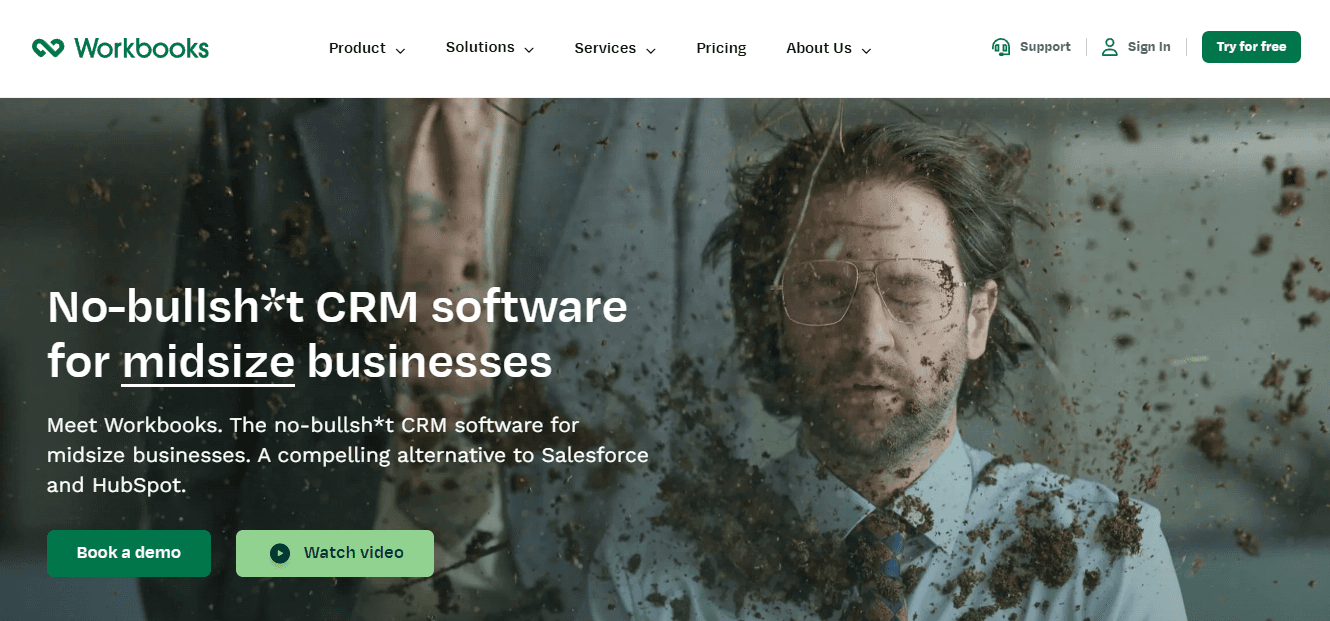
Cloud CRM for small and mid-sized businesses that adds order and project management to core sales and marketing features. Select Workbooks when you need CRM, plus operational features like quoting and project tracking, all in one contract.
19. Monday Sales CRM

Sales CRM built on Monday’s work OS, blending deal tracking with shared boards and collaboration tools for cross-functional teams. It’s best when you want CRM activity visible alongside project and product workflows.
20. Pipeliner CRM
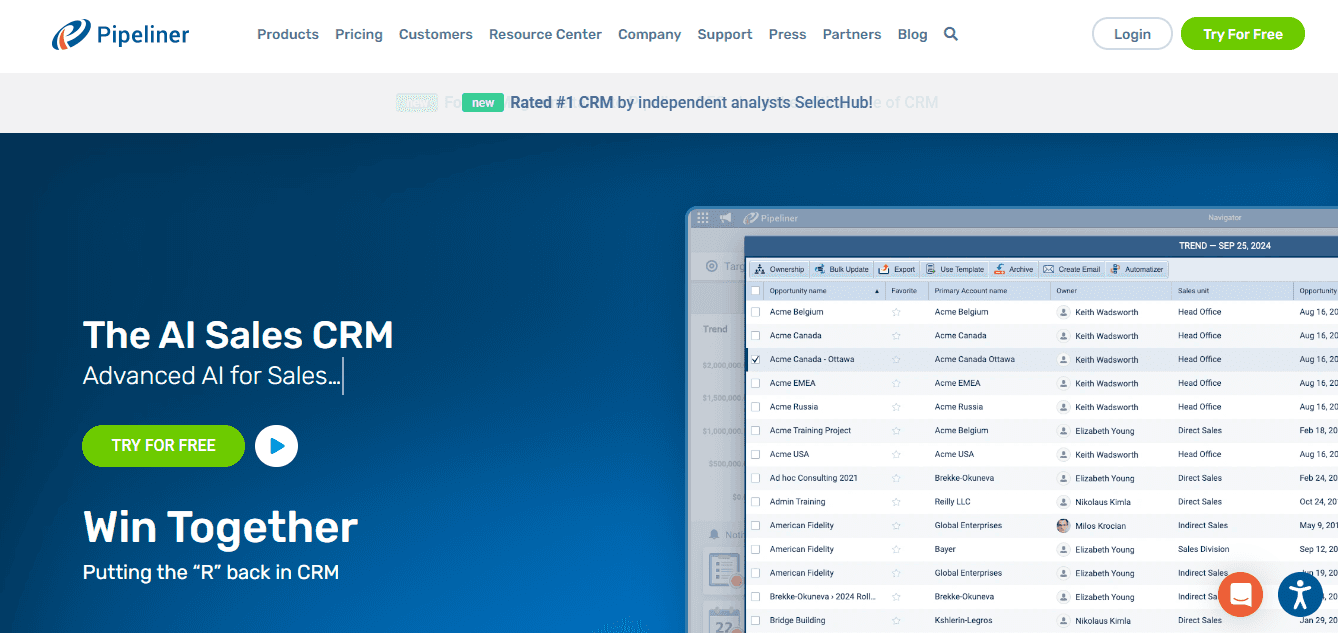
For SMBs and mid-market reps, sales-focused CRM with:
- Visual pipelines
- AI-assisted sales automation
- Customer behavior tracking
Pipeliner emphasizes a structured selling methodology and agent-level coaching.
21. kvCORE

Real estate CRM and lead generation platform with MLS integrations, transaction management, and automated nurture sequences.
Real estate brokerages like kvCORE for its all-in-one approach to:
- Listings
- Leads
- Conversions
22. Creatio CRM
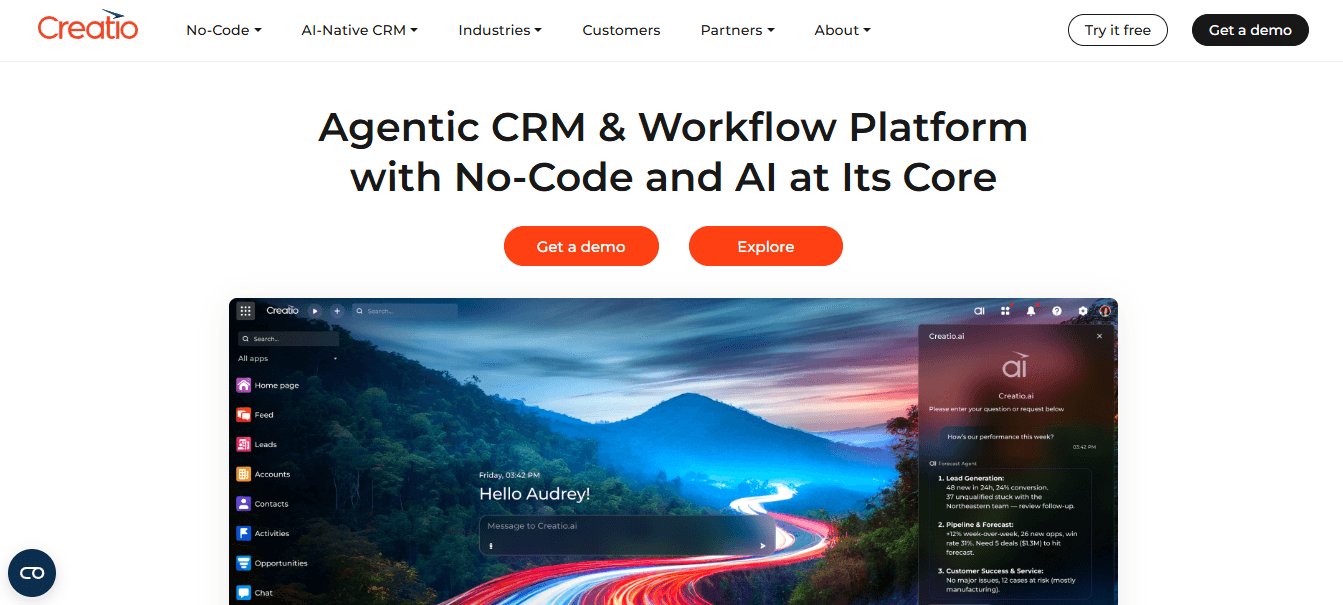
Low-code CRM that pairs process automation with service and sales capabilities for teams that want to design tailored workflows. Creatio’s BPM roots enable line-of-business users to model processes without lengthy developer cycles.
23. SalesRabbit

For door-to-door and retail teams, field-sales CRM focused on:
- Territory management
- Route optimization
- Mobile-first lead capture
It cuts inefficiency in field operations by combining:
- Mapping
- Team dispatch
- Call coaching
24. SalesNOW
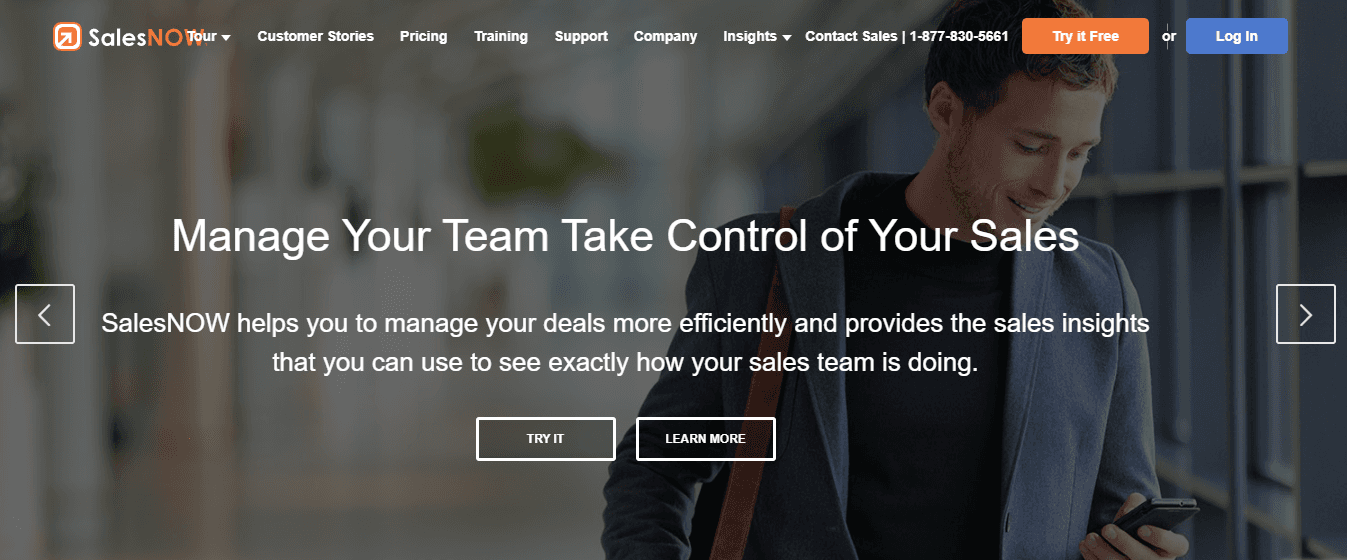
Lightweight CRM for small and growing businesses that need contact management, sales forecasting, and marketing tools with simple integrations. It’s a practical choice when budget and time to deploy outweigh the need for advanced automation.
25. Clio

Practice management CRM built for law firms, offering matter and case management, time tracking, and billing that tie directly to client records. Clio’s specialty integrations with legal document and discovery tools streamline legal operations.
26. Quickbase
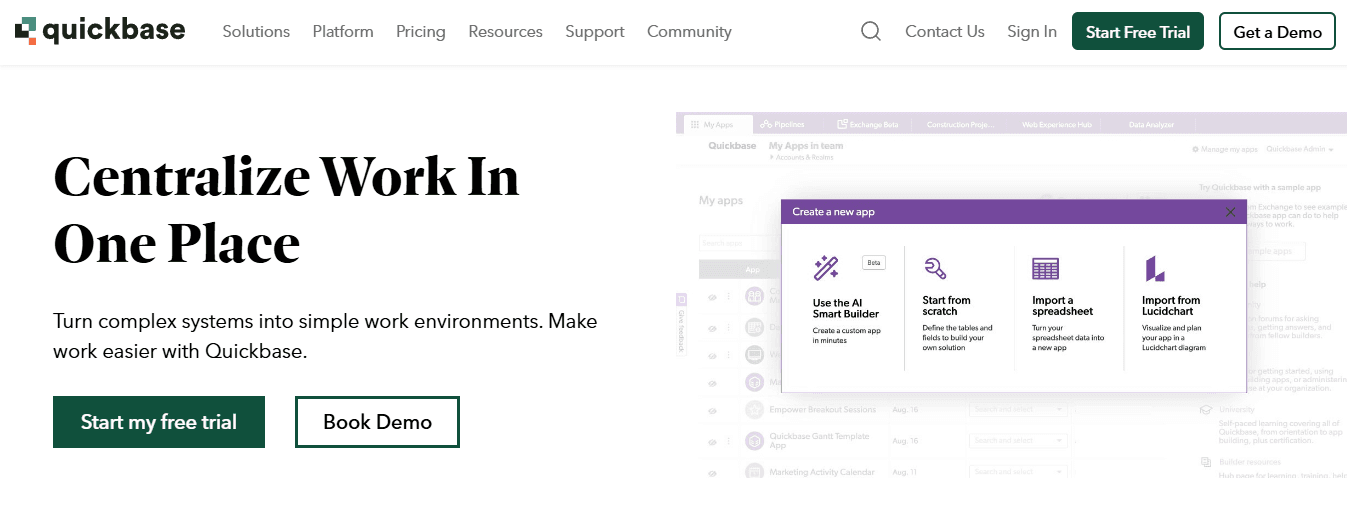
Low-code platform used as a CRM-like system for teams that need custom apps, workflow automation, and database controls without building from scratch. Quickbase is ideal when off-the-shelf CRMs don’t match your process and you need rapid, maintainable customization.
The Cost of Familiarity: Centralizing Conversation to Defeat Fragmentation and Improve Resolution
Most teams handle CRM selection by picking whichever tool feels familiar and switching later, because familiarity wins when change is costly and schedules are tight. That makes sense early on, but as channels, data sources, and compliance needs multiply, those familiar choices create fragmentation, longer handoffs, and lost context across agents and product teams. Teams find that platforms like Bland AI centralize conversational routing, preserve audit trails, and automate routine voice and chat interactions, thereby reducing manual transfers and search time, which resolves feel faster and more consistent.
CRM Fit for Scale: Why Simple Tools Erode into Friction Past 100 Agents
If your support org is under 25 agents, a more straightforward CRM will buy speed; when headcount climbs past 100 with multiple product lines, governance, role-based access, and API depth become non-negotiable because manual processes fail quickly under scale. This pattern appears across software, retail, and service companies: early wins from simple tools erode into daily friction once volume and stakeholder growth occur, so choose tools with the right balance of configurability and operational guardrails.
From Feature Bet to Infrastructure Decision: Driving Measurable CX Outcomes
Practical note on adoption pressure: Zendesk, 80% of enterprises believe that customer service software is crucial for their operations, which is why vendor choice often becomes an infrastructure decision, not a feature bet. And adoption does move the needle, as shown by the same article that 70% of companies report improved customer satisfaction after implementing enterprise customer service software, reinforcing that the right platform lifts measurable CX outcomes when paired with thoughtful process change.
Capacity and Morale Drain: Prioritizing Integrations and AI to Combat Context Exhaustion
I’ve seen the exhaustion that comes when teams try to keep everything in spreadsheets and ticket copies; it drains capacity and morale because people spend hours reconciling context rather than resolving issues.
That pressure pushes organizations to:
- Prioritize integrations
- Audit logs
- Agent-assist features in their next procurement cycle
These elements reduce repetitive work and maintain service consistency as volume increases. What actually happens when you replace fragmented voice routing with a consistent, AI-assisted reception system is less technical and more revealing than most teams expect.
Book a Demonstration to Learn About our AI Call Receptionists
I know how it feels when missed leads and clumsy reception workflows turn prospects into tickets and frustration. Schedule a demonstration to see Bland AI run your busiest call in real time and judge the difference yourself, since Resonate AI, 85% of businesses report increased efficiency with AI receptionists and businesses using AI receptionists see a 30% reduction in operational costs.
Related Reading
- Best Conversational AI
- Conversational AI Companies
- What Is Customer Support
- Customer Service Qualities
- Customer Support vs Customer Service
- Help Desk Best Practices
- Multilingual Conversational AI


